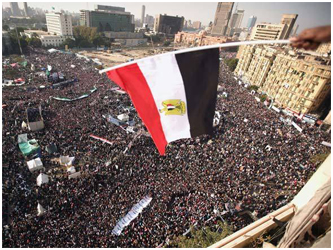Elections
Egypt court suspends vote, but ruling is disputed
 An administrative court on Wednesday suspended Egypt’s presidential election, scheduled to start on May 23, but legal experts said the ruling was expected to have little effect, and the candidates continued their campaigns, including preparations for the first televised debate Thursday night.
An administrative court on Wednesday suspended Egypt’s presidential election, scheduled to start on May 23, but legal experts said the ruling was expected to have little effect, and the candidates continued their campaigns, including preparations for the first televised debate Thursday night.
Egyptians expressed disbelief and derision in response to the ruling, which underscored the continuing lack of certainty about many details, including the final list of candidates and the job description of the president. The election is planned as the final step in the country’s military-led transition from the government of the ousted president, Hosni Mubarak.
The administrative court sought to suspend the elections mainly because of a procedural issue: it found that the date had wrongly been set by an independent electoral commission instead of by the governing generals themselves. Adding to the complexity is the belief of some officials that the administrative court itself lacked the authority to suspend the vote, although the technical details of jurisdiction over election rules are a matter of heated dispute.
Legal experts said Wednesday that they expected the election to proceed as scheduled because the military council running Egypt promised as recently as Wednesday to begin the voting on May 23, and lawyers were expected to appeal the administrative court’s decision to the Supreme Constitutional Court.
"I would be shocked" if the ruling changed the electoral timetable, said Michael Wahid Hanna, a lawyer and researcher at the Century Foundation, who was in Cairo on Wednesday night. Because of the overlapping authority of the generals, their interim declarations and the old Constitution, "it is nonsense to think that this is a fully functioning legal system", Mr. Hanna added.
Just last month, a special election commission ruled that three of the leading candidates were ineligible on the basis of the unusually thorny criteria of Egypt’s patchwork of interim electoral laws laid over the cumbersome rules intended to protect incumbents that were put in place by Mr. Mubarak. Lawyers representing disqualified candidates and others have challenged the commission’s authority.
Parliament, meanwhile, passed a law trying to disqualify a fourth leading candidate, Ahmed Shafik, a former air force general who ran Egypt’s state airline and became Mr. Mubarak’s last prime minister. The law sought to block senior Mubarak officials from running, and the governing generals signed it. But the electoral commission referred the measure to the Supreme Constitutional Court. How and when the court may rule, and what that could mean for the legitimacy of the elections, are open questions.
(Published by The New York Times - May 9, 2012)